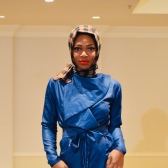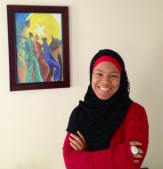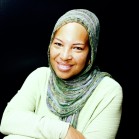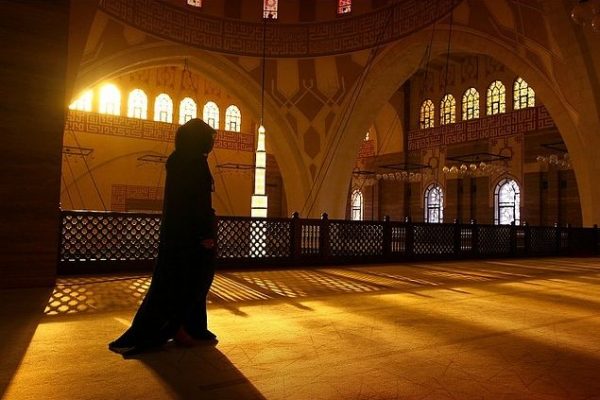The letter highlights a need for additional educational events to provide a holistic view of the hijab.
The letter highlights a need for additional educational events to provide a holistic view of the hijab.

On 1st February 2018, World Hijab Day was observed and encountered opposition from an unlikely source. A number of Black Muslims were taken aback on February 13th, when 10 feminist faculty members of Spelman College released a letter expressing their concerns with the Spelman student who organized fellow students and Spelman faculty who participated in World Hijab Day. It included concerns about the women around the world, who protest World Hijab Day and Muslim women who are forced to wear the hijab (in Saudi Arabia and Iran) with violent consequences if they refuse.

While the authors took great care to express their thoughts and concerns about Muslim women who wear hijab from around the world, their failure to mention the many Muslim women who chose to adhere to a command from God to cover their hair, speaks to their incomplete or misunderstanding of hijab. Unfortunately, many people, fail to grasp and comprehend our perspective. It is so foreign to them why any woman would want to cover her hair every time she walks out the door, so contrary to their order of freedom and justice, that it just does not compute.
Why do some women care what or how Muslim women dress?

This feigned concern for the rights of Muslim women “forced to wear hijab” seems to be a double standard. The Spelman faculty wrote about the women in Iran who are protesting the laws requiring them to wear hijab. However, there were few if any historical protests for the women in Iran in the late 1930s when they were forced to remove their hijab with violent consequences if they did not. It was unlawful for them to wear hijab. Women were relegated to their homes because they could not, would not come out uncovered. You may think that this was so long ago, however, in Turkey until 2013 – just five years ago – it was unlawful for women to wear hijab to government offices, hospitals, universities, and schools. That meant that Muslim women who wore hijab could not go to school, to the hospital, work for the government or go to university. Where was the outcry for those women who only wanted to show their devotion to God? While the Spelman letter does mention the American discrimination faced by Muslim women who cover, there is generally little outcry such as for the three women in New York who were forced to remove their hijab to have mugshots taken. Their case was just settled for $180,000.
This letter is policing at its finest.

It is a female reflection of white patriarchy and colonialism that says Muslim women are supposed to do and be a certain way that reflects western values. What about nuns who cover and dress a certain way for God? Are you concerned that they are forced to cover? Well, Muslim women who cover for the sake of our Lord reject your policing. We have rejected it from the first colonizers who attempted to impose it on us.
We rejected it then and we continue to reject it now.
As educators and academics, we have to find better ways to tackle the complexities of culture, religion, life and what it means to be a woman in America. Policing how each other dresses is not the best way to educate or inform, rather, it is the best way to offend.
That mindset of telling Muslim women what they should and should not wear is so  pervasive in America, that a Philadelphia high school referee easily prevented Nasiha Thompson-King – a 16-year-old Muslim student at Mastery Charter School-Shoemaker Campus in Philadelphia and a member of the school’s girls’ basketball team – from playing on her team. The referee demanded Nasiha choose between the court or her hijab. She chose to obey God.
pervasive in America, that a Philadelphia high school referee easily prevented Nasiha Thompson-King – a 16-year-old Muslim student at Mastery Charter School-Shoemaker Campus in Philadelphia and a member of the school’s girls’ basketball team – from playing on her team. The referee demanded Nasiha choose between the court or her hijab. She chose to obey God.
In response to these incidents, Black Muslims felt duty bound to respond. Here are some of their responses.
Majidah Muhammad: Wife, Mother and Educator

As an alumna of Spelman College, Class of 2009. I am extremely disheartened by the letter signed by 10 Spelman faculty members and department chairs voicing their “concerns” with the 5th Annual World Hijab Day. When I think of Spelman, I think of a nurturing environment for all women to thrive regardless of their religion. The letter highlights a need for additional educational events to provide a holistic view of the hijab. The impact is greater than the intent. If there were genuine concerns about educating Spelman women about Islam and the hijab, then the professors should have reached out to An-Nisa, the Muslim Women’s Organization on campus to collaborate.
Although wearing the hijab is a complex issue among Muslim women, the Qur’an is clear. Khadijah, Aisha, Maryam, Hagar, and many other women in the Qur’an are our examples of “feminism” grounded in strength and capabilities, not oppression. It is clear that Spelman still has much work to do to empower all students.
Hakeem Muhammad: Patheos Truth to Power Blogger
Let me get this straight: The faithful Mother of the Believers, Aisha bint Abu Bakr (May  Allah be pleased with her) commanded an army whilst clothed modestly in hijab. The great African scholar-warrior-queen Nana Asma’u, in full hijab, continued this tradition by taking part in military campaigns for the Sokoto Caliphate. The Great Black Muslim woman revolutionary, Safiya Bukhari, as a member of the Black Liberation Army undertook revolutionary actions for the freedom of Black people while wearing hijab. Now, folks want to suggest that our Muslim sisters cannot partake in boxing, basketball and other athletic competitions in the modest clothing which Allah (SWT) has prescribed for them? Absurd!
Allah be pleased with her) commanded an army whilst clothed modestly in hijab. The great African scholar-warrior-queen Nana Asma’u, in full hijab, continued this tradition by taking part in military campaigns for the Sokoto Caliphate. The Great Black Muslim woman revolutionary, Safiya Bukhari, as a member of the Black Liberation Army undertook revolutionary actions for the freedom of Black people while wearing hijab. Now, folks want to suggest that our Muslim sisters cannot partake in boxing, basketball and other athletic competitions in the modest clothing which Allah (SWT) has prescribed for them? Absurd!
The real reason they despise the hijab and wish to see it removed from our Muslim sisters is that the hijab is rooted in the underlying Islamic beliefs that challenge western materialism, commodification and capitalism. Indeed, the great Black revolutionary Frantz Fanon observed that French colonists would forcibly remove the hijab from our Muslim women as part of a racist colonial effort to enforce secularism. Today, perverted male-owned fashion companies set the fashion trends and profit from the commodification of women’s bodies and sexuality. The need to keep up with the latest fashion trends and clothing, in western materialistic liberal society results in emptiness, stress and depression. Indeed, Islam provides a transcendent value for clothing choice, that comes from Allah, not man. Hijab is worn out of submission to Allah, not man and as such hijab, rooted in its Islamic foundation, comes as a clear alternative to western materialism and capitalism.
Donna Auston: Anthropologist, Writer, Public Speaker, Ph.D. Candidate
 It is the responsibility of the administration at a university or college to create a safe space for a diverse student population. I am responding to what happens when tenured faculty band together to issue a public reprimand of a student, skipping over the many chances to engage in dialogue and educate as is their professional and ethical duty. There is a problematic power differential here that makes this action seem a contravention of the duty to create educational spaces free of bullying and intimidation. From the Combahee River Collective Statement:
It is the responsibility of the administration at a university or college to create a safe space for a diverse student population. I am responding to what happens when tenured faculty band together to issue a public reprimand of a student, skipping over the many chances to engage in dialogue and educate as is their professional and ethical duty. There is a problematic power differential here that makes this action seem a contravention of the duty to create educational spaces free of bullying and intimidation. From the Combahee River Collective Statement:
In the practice of our politics we do not believe that the end always justifies the means. Many reactionary and destructive acts have been done in the name of achieving “correct” political goals. As feminists we do not want to mess over people in the name of politics.
Given that they invoked feminism as a motivating framework for their letter, there are real questions about politics of care that ought to be informing this conversation, yet seem to be absent. Their definition of feminism relies on the fetishizing of the hijab as the alpha and omega of liberation, as it concerns Muslim women — a narrow and destructive framework to be sure. The fact that they have invoked Asra Nomani, a woman who has publicly called for government surveillance and law enforcement profiling of Muslim communities, and has gone on record to justify her support of Trump. It calls into question any meaningful moral feminist high ground — considering the myriad ways that both of these policy positions actively harm Muslim women marginalized by race, gender, citizenship, disability, etc. as well as religious identity. As a position that only makes sense when hijab becomes the starting and ending point of all assessments of Muslim women’s liberation.
Maryam Sharrieff: Muslim Chaplain 
Spelman College, Atlanta, Georgia’s historically Black woman’s mission statement purports, that it is “dedicated to the intellectual, creative, ethical, and leadership development of its students”.
This past February, when a Bengali Muslim-American student creatively illustrated her leadership development skills by hosting World Hijab Day on campus, she was met with an unexpected, ugly response in the form of a public memorandum from certain faculty. The perception of Spelman College’s embracement of women of color was sorely stained and challenged. Once again, this ultimatum missive proved to be an attempt to silence and control Black bodies and Black women’s voices, and by extension, all women of color. This is especially reminiscent of the need and emergence of womanist theory, in the vacuum of white women’s feminism that more often than not, curtails and silences the important voices of Black Muslim women. Many Muslim women students, including those who are not Black, have decided to make Spelman their alma mater. Although there have been a few studies and articles focusing on Muslim American women on campus, none have particularly focused on the Black Muslim women’s experience. Almost two years to the date of “World Hijab Day”, evangelical Wheaton College’s tenured Christian professor Larycia Hawkins, was dismissed for donning a hijab in solidarity with her Muslim sisters. In the age of Intisar Rabb, tenured Harvard Law professor Amina Matthews and renowned social activist; and Ibtihaj Muhammad, Olympic fencer and fashion designer (who now has a new hijabi Barbie); we need to do as we say, not as we do and fulfill the ethos of the Spelman mission statement, to uphold “the intellectual, creative, ethical and leadership development of our students”.
 By Nisa Muhammad. Nisa is the Politics Editor of Sapelo Square. Mrs. Muhammad is a recent graduate of Hartford Seminary, Class of 2017, with a masters in Islamic Studies and a Graduate Certificate in Islamic Chaplaincy. She is also the Assistant Dean of Religious Life at Howard University. She was the 2007-2009 Spelman College Parents Association Northeast Coordinator.
By Nisa Muhammad. Nisa is the Politics Editor of Sapelo Square. Mrs. Muhammad is a recent graduate of Hartford Seminary, Class of 2017, with a masters in Islamic Studies and a Graduate Certificate in Islamic Chaplaincy. She is also the Assistant Dean of Religious Life at Howard University. She was the 2007-2009 Spelman College Parents Association Northeast Coordinator.
This article was originally published here by our friends over at Sapelo Square.





